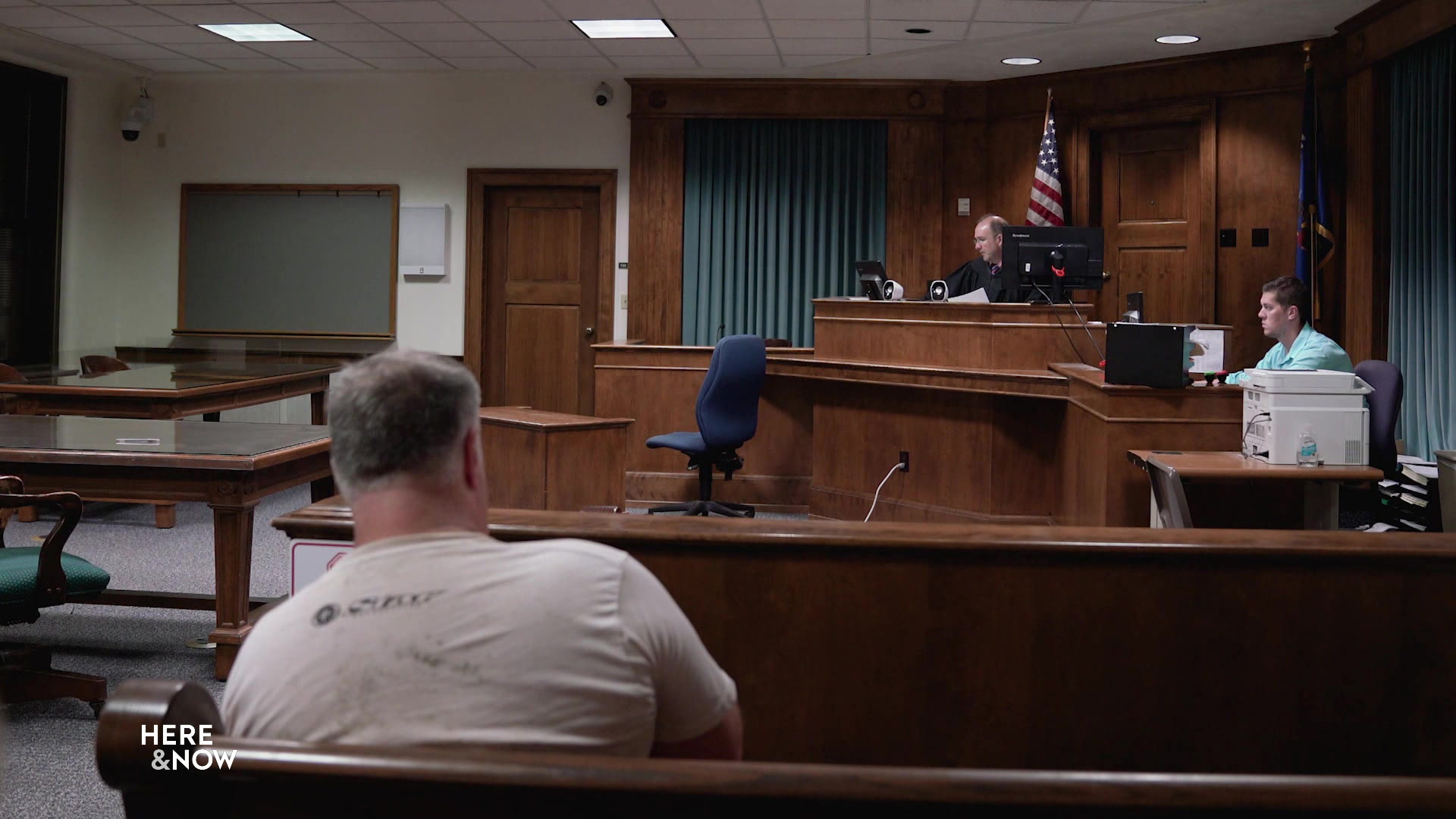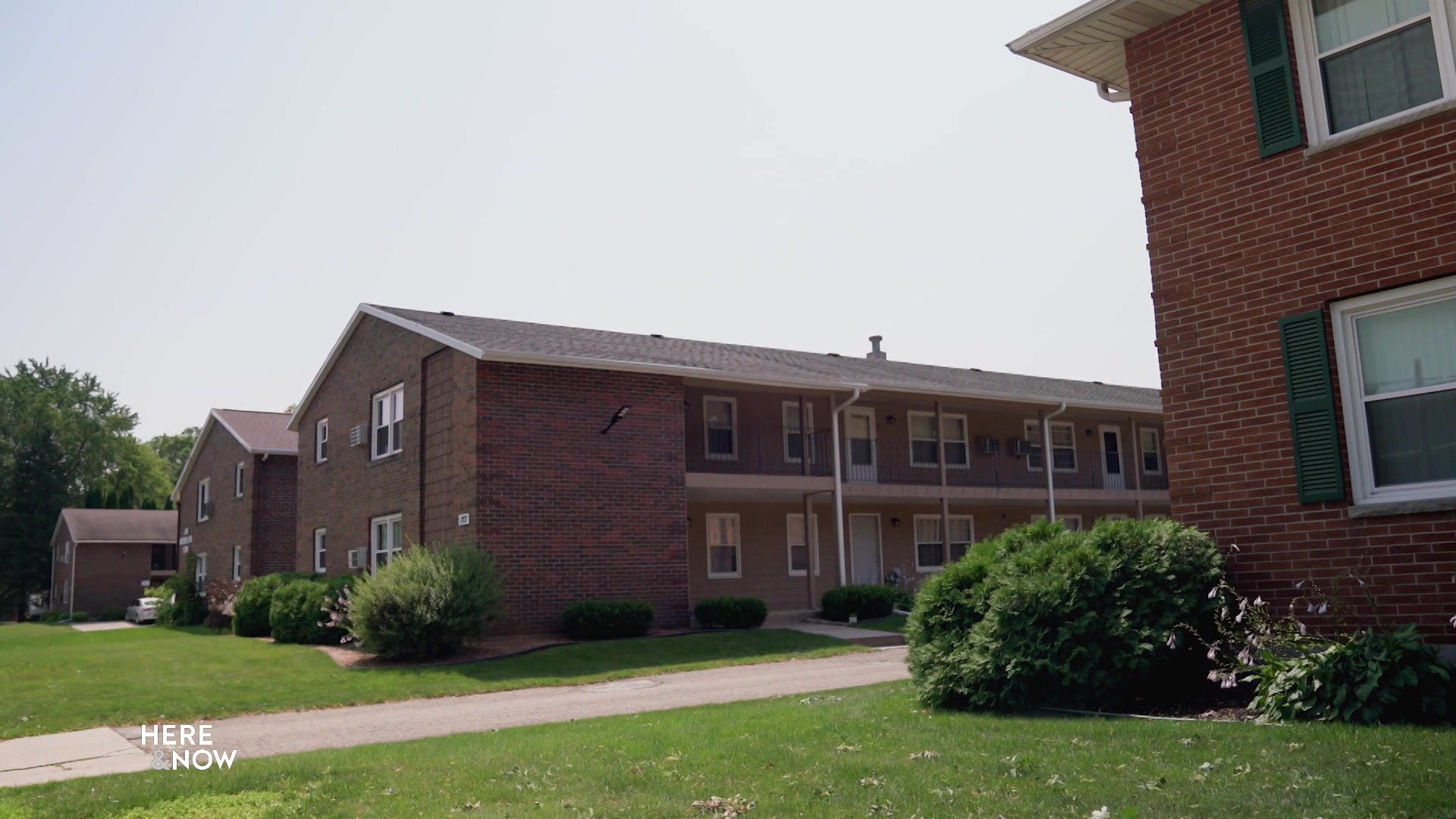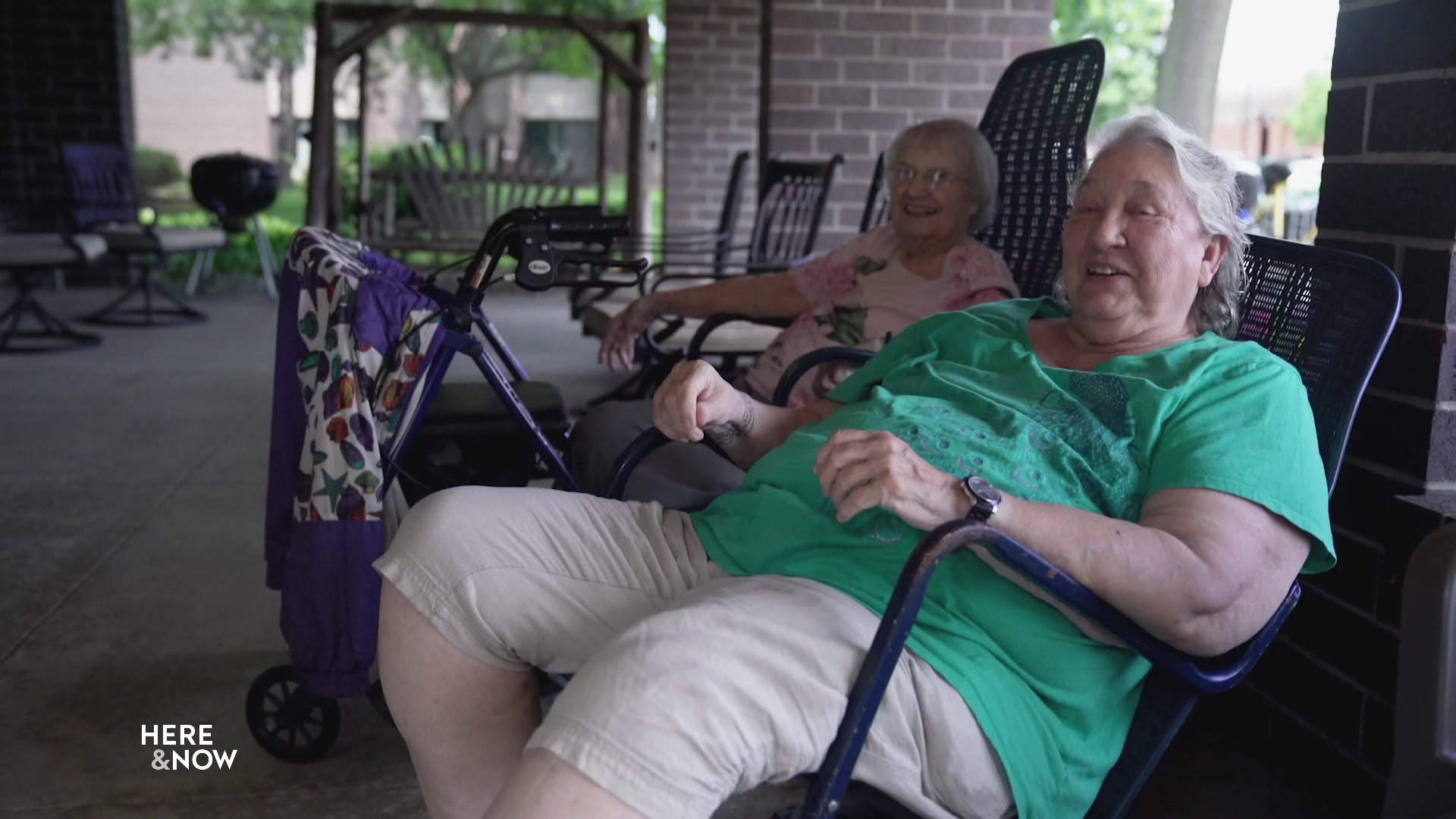Wisconsin's Evictions Roller Coaster
Reporter Marisa Wojcik explores how the court process of evictions and federal rental assistance fits into Wisconsin's broader housing crisis, even as the CDC has reinstated a pandemic moratorium with the spread of the Delta variant of COVID-19.
By Marisa Wojcik | Here & Now
August 12, 2021 • Northeast Region
“It can be tough, emotionally tough, when you have, you know, sometimes when kids are here, they’re there with mom and dad, and they’re being evicted,” said Brown County Commissioner Paul Burke, who sees every eviction case that comes through the courthouse.
“I’d say 90% of what we generally see are for nonpayment issues,” he said.
Prior to a federal moratorium on evictions, in place since September 2020, nonpayment issues usually ended in a renter forced out of their housing.
“Especially when you have nonpayment outside of this moratorium time to to get an eviction,” Burke explained. “It’s not a difficult process.”
Meant to slow down the spread of COVID-19, Burke saw firsthand how the ban on evictions emptied out the courtroom.
“Numbers-wise, we probably have about 20 or so today. All told and on pre-Covid, it wouldn’t be unusual for us to have 50 or 60 per week,” he said.
Across Wisconsin, evictions decreased by a third while the ban was in place.

Brown County Commissioner presides over an eviction hearing, the number of which have dropped while a federal moratorium has been in place.(Credit: Marisa Wojcik / PBS Wisconsin)
The moratorium expired on July 31, 2021, but days later the Centers for Disease Control and Prevention put a new one in place for counties with high transmission rates of COVID-19 — as the Delta variant spread rapidly.
“I get calls an hour before the first court date,” said housing attorney J. Scott Schnurer, who provides free services through Legal Action Wisconsin. If a tenant does have a lawyer present, it’s probably him.
“Tenants would be in a much better position if they had representation,” said Schnurer. “A lot of times, there’s the process, which is difficult when you’re not familiar with it.”
But most tenants go through the process alone.
“I ask them if they have a legal defense and they’ll say, ‘Yes, I lost my job. I’ve lived here for two years and I’ve always paid my rent and I lost my job. That’s why I haven’t been able.’ They think that’s a perfectly valid defense and it’s certainly understandable,” explained Burke. “They’re very surprised when I tell them that that’s not. ”
Without a lawyer present, the tenant is at a disadvantage.
“It is intimidating to be in a courtroom when you’re not used to being in a courtroom,” said Schnurer.
It’s not just what happens in the courtroom — the entire eviction process is unknown territory to most renters.
“The speed of the whole process is really scary,” Schnerer described. “I mean, it can happen from start to finish in three to four weeks. The sheriff shows up and moves you out and then you’ve lost everything. I’ve been involved with easily hundreds of evictions.”
Deputy Joseph Fischer in the Brown County Sheriff’s Office assists in removing the tenant, only if they haven’t left when the court ordered.
“When someone truly does need help, I don’t want to be the person just to remove them. I want to at least give them some sort of direction if they’re willing to take it,” said Fischer.

Brown County Deputy Joseph Fischer tries to connect evicted tenants with social services so they’re not just out on the street. (Credit: Marisa Wojcik / PBS Wisconsin)
“The emotion and the stress and, the fact that they’re going through now, and all these people are going through a crisis of losing their housing, all of that comes out at the very last step,” said Capt. John Rousseau of the Brown County Sheriff’s Office Support Services Division.
I think the pandemic really showed the disconnect in communication between landlords and tenants,” said Schnurer. “It’s been either you pay your rent or you don’t. You get out or you don’t get out. I think that there’s this mentality that you just don’t communicate until it’s almost too late.”
Joe DeKeyser owns six properties in Green Bay. To him, communication is important.
“You have to have a line of open communication with your client or family, and also have patience and the ability to understand things that they are going through also in their lives,” he said
DeKeyser said he’s only gotten to the point of evicting a tenant once.
In my situation anyway, it is the last resort,” he said.
For landlords with far more properties, evictions are common.
“I personally saw it right here in Green Bay being in that courtroom,” recalled DeKeyser. “Yeah, there were companies that have a full time person with a folder six inches wide full of eviction notices, and went up to the judge and just read one right after the other, just like it was calling out people for lunch.”

Many renters are unfamiliar with how process of eviction works. (Credit: Marisa Wojcik / PBS Wisconsin)
“It’s really used as a rent collection tool,” said Branden DuPont, a data analyst with the Medical College of Wisconsin.
“If you have like 70% of your income going to rent and you have a large shock, right,” DuPont explained. “So your car breaks down, or your kid has some sort of emergency, maybe they break their arm. You have this decision because you’re already overextended financially. Do I pay my landlord or do I pay to fix my car so I can get to work or this medical bill because my kid broke his arm? Oftentimes, what the serial eviction practice is doing is it’s trying to reprioritize who gets paid first.”
Hedging which bills to pay first is happening to more and more people.
“The income disparity has just gotten worse and worse,” said Cheryl Detrick, president and CEO of the Northeast Wisconsin Community Action Program. Look at the home buying market. It has just skyrocketed in value, which is great for property tax values. It’s great for communities. It’s great for homeowners who are suddenly able to have this equity in their home that they maybe didn’t have before. But it’s not good for people who are either looking to buy or looking to rent, because as those values go up, rents go up too.”
A U.S. Census survey estimated nearly 78,000 households in Wisconsin were behind in rent as of the beginning of July.
“Most people are paying more than 50% of their income in housing,” explained Detrick. “We’re talking about people who are paying fair market rent, $600 to $800 dollars a month, depending on their family size. Something happens — it takes one tiny slip and they go off the edge. They can’t make their rent. And they get evicted.”
Green Bay resident Norma Tucker lived this experience when she was forced out of her home.
“Because I couldn’t afford it anymore,” explained Tucker. “My payments started out at $600-plus. And then when I moved out, it was $849 for the payment, and that was more than half of what I made.”

Norma Tucker, who lives in Green Bay, points to the difficulties of rising rents. (Credit: Marisa Wojcik / PBS Wisconsin)
The moratorium was put in place to address an immediate health crisis — but evictions have been impacting health long before the pandemic.
“To be in good health, you need stable, reliable shelter, right? First and foremost,” said DuPont. “But there’s a lot of established research showing an association between evictions and a whole host of social determinants of health in the worse health outcomes, health for children especially. It’s an incredibly destabilizing experience.”
A glimmer of short-term stability came with billions of federal dollars in emergency rental assistance. In Wisconsin, the state has partnered with local community agencies to get that money out. The renter applies for assistance and the check goes straight to the landlord.
“In order to make this successful, it really does require buy-in and participation from landlords, communities, tenants, state government, federal dollars,” said Brad Paul, executive director of the Wisconsin Community Action Program Association. “There’s a lot of pieces to making this work right now. The need is to meet people’s emergency needs and get them stabilized while we figure out longer-term solutions for our housing crisis.”
Tucker now lives in subsidized housing, where her rent is guaranteed to be a third of her income. And she’s enjoying her retirement there.
“We work puzzles, we have dinners and it’s just nice,” she said.
 Passport
Passport











Follow Us